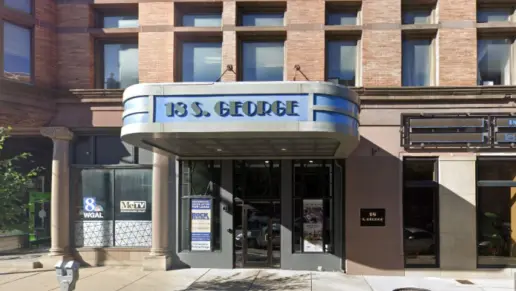About Silvermist – Poconos
Silvermist is a mental health and substance use disorder (SUD) treatment organization with two locations, including the Poconos Campus in Moscow, Pennsylvania. Treatment includes supervised detox and residential services for clients with addiction and co-occurring disorders.
The organization accepts insurance from many major providers and is in-network with many health plans. The Poconos program is for women 18 and over.
Addiction Treatment in a Serene Location
The campus is in the Poconos Mountains on a 32 acre, secluded, scenic, and peaceful property only 23 minutes from the international airport in Scranton. The program is small with only 12 beds, which allows for personalized care. The accommodations are comfortable and private with relaxing outdoor spaces.
Unique Experiential Therapies
One of the things that struck me about this program is the unique experiential therapies. The women do arts and crafts that promote emotional healing.
There is an equine assisted therapy program that helps women explore their emotions and reconnect with themselves. Equine therapy helps individuals build confidence and trust as well as improve balance and strength. I noticed that the group also takes excursions to a salt cave to reduce stress and promote relaxation, which sounds interesting and exciting.
Supportive Staff and Environment
Many clients have praised the supportive staff and individual attention while in treatment. Alumni have offered positive feedback about the strong sense of community they built among their peers, the compassionate counselors and the beautiful setting. Others have mentioned the ongoing post treatment support and life changing impact of the program.
Clients have access to walking paths, quiet spaces for meditation and an outdoor fire pit. There are sports courts, open fields and fitness equipment, so clients can work on improving their physical health in addition to their mental health.
Rehab Score
Gallery

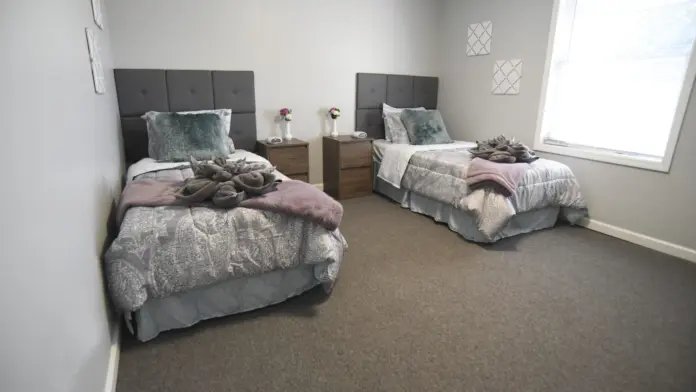
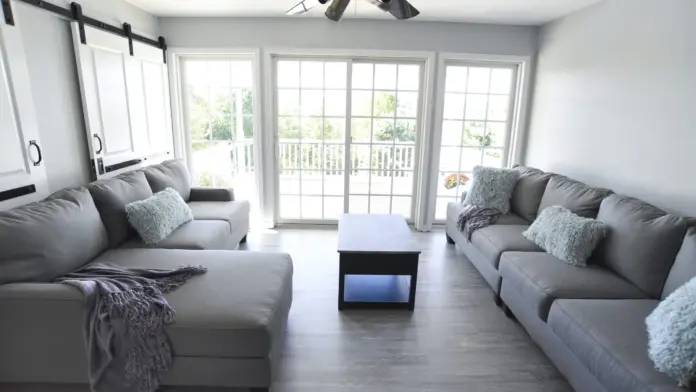
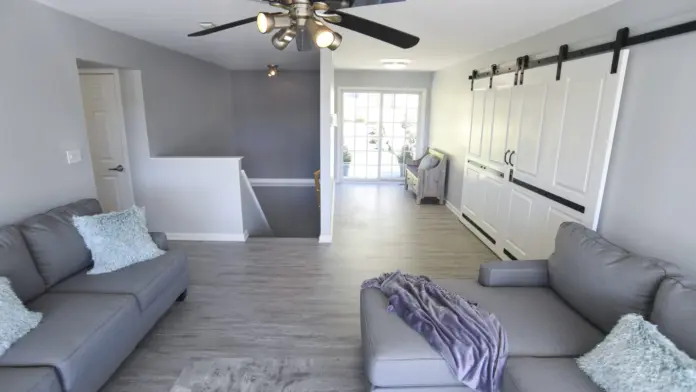



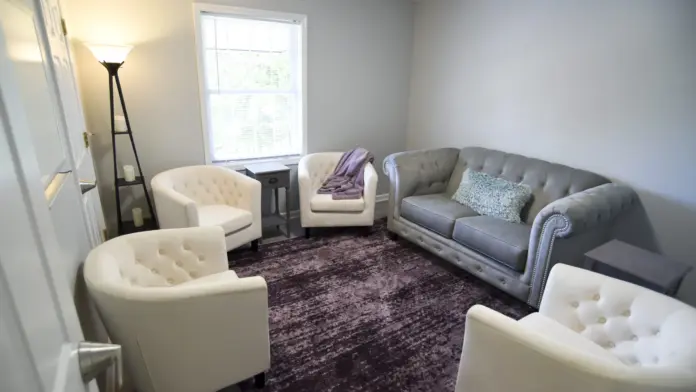
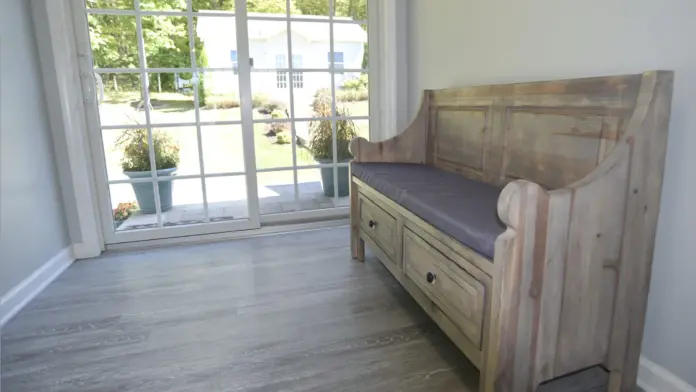
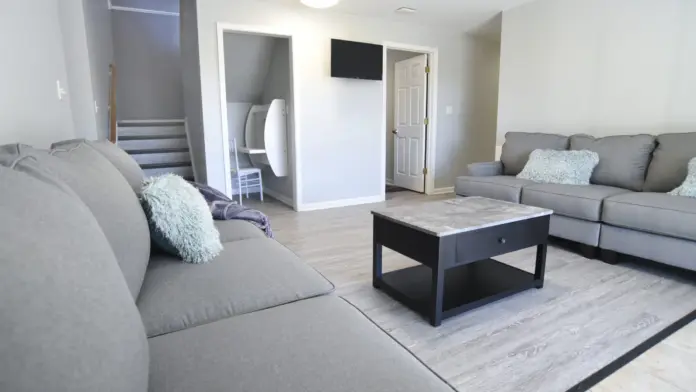
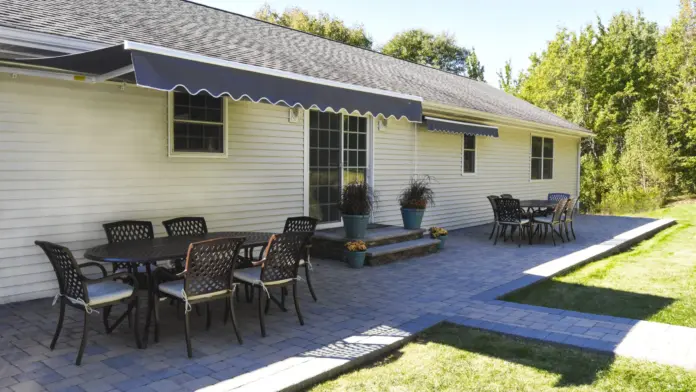
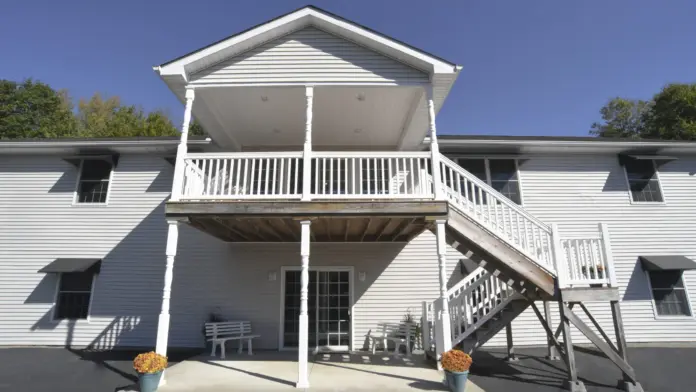
Accepted Insurance
Other Forms of Payment
Private insurance refers to any kind of healthcare coverage that isn't from the state or federal government. This includes individual and family plans offered by an employer or purchased from the Insurance Marketplace. Every plan will have different requirements and out of pocket costs so be sure to get the full details before you start treatment.
Self-pay involves paying for treatment out of your own pocket. You can use savings or credit, get a personal loan, or receive help from family and friends to fund your treatment. If you don't have insurance or your insurance plan doesn't cover a specific program, self-pay can help ensure you still get the care you need.
Addiction Treatments
Levels of Care
 24-Hour Clinical Care
24-Hour Clinical Care
 Inpatient
Inpatient
Treatments
Alcoholism is a syndrome of dependent alcohol use. Also called alcohol use disorder (AUD), the symptoms include craving alcohol, not being able to stop drinking, and feeling anxious or irritable when not drinking. For many people, alcohol rehab in Pennsylvania is a beneficial treatment. Programs offer many levels of care, including medical and behavioral therapies.
Drug rehab in Pennsylvania is devoted to the treatment of addiction. Levels of care, treatment methods, and settings differ, but the aim of each program is to end drug dependency and empower participants to achieve long-term recovery.
In Pennsylvania, substance abuse treatment programs can help address addiction and any co-occurring mental health problems. These programs incorporate evidence-based therapies such as cognitive-behavioral therapy (CBT), dialectical behavior therapy (DBT), and psychoeducation to help you uncover the underlying causes for your substance use and develop new skills to help you manage stress and overcome future triggers which may challenge your sobriety.
Pennsylvania's specialized dual-diagnosis addiction treatment programs prioritize comprehensive care for individuals with co-occurring substance use disorders and mental health conditions. Providing various levels of care, including outpatient, inpatient, and partial hospitalization, dual-diagnosis experts use evidence-based therapies, recovery support groups, and education to treat both disorders, promote mental health, and improve your quality of life.
Programs

Adult Program

Program For Women
Clinical Services
Dialectical behavior therapy in Pennsylvania is an evidence based technique that involves group therapy, individual therapy, and phone coaching. Group sessions focus on learning behavioral skills. Individual therapy gives you the opportunity to apply what you're learning to your personal situations. Phone coaching allows you to call your therapist during the week for help with challenging situations.
During eating disorder treatment, you may participate in one or more types of therapy. These include family therapy, dialectical behavior therapy, and cognitive behavioral therapy. These evidence based methods are proven to be effective in treating various eating disorders.
Emotions that surface during experiential therapy can reveal how you've coped with situations in the past. A trained therapist will guide you through conversations about your emotions and reactions either during therapy or in a follow up session. Therapy may include activities such as equine therapy, wilderness therapy, martial arts, drama, music, or art.
Artistic talent is not required to participate in creative arts therapy. This form of rehab treatment in Pennsylvania simply allows you to try different art media and use the one that works best for you to express yourself. The goal is not to produce quality art but to use the creative process as an outlet for recovery.
Motivational interviewing in Pennsylvania gives you the opportunity to share your perspective and explore your ideas and motivation for change. Your therapist will walk you through the four steps of engaging, focusing, evoking, and planning to empower you to make any desired changes in your life.
Contact Information
272 Hamlin Hwy
Moscow, PA 18444








